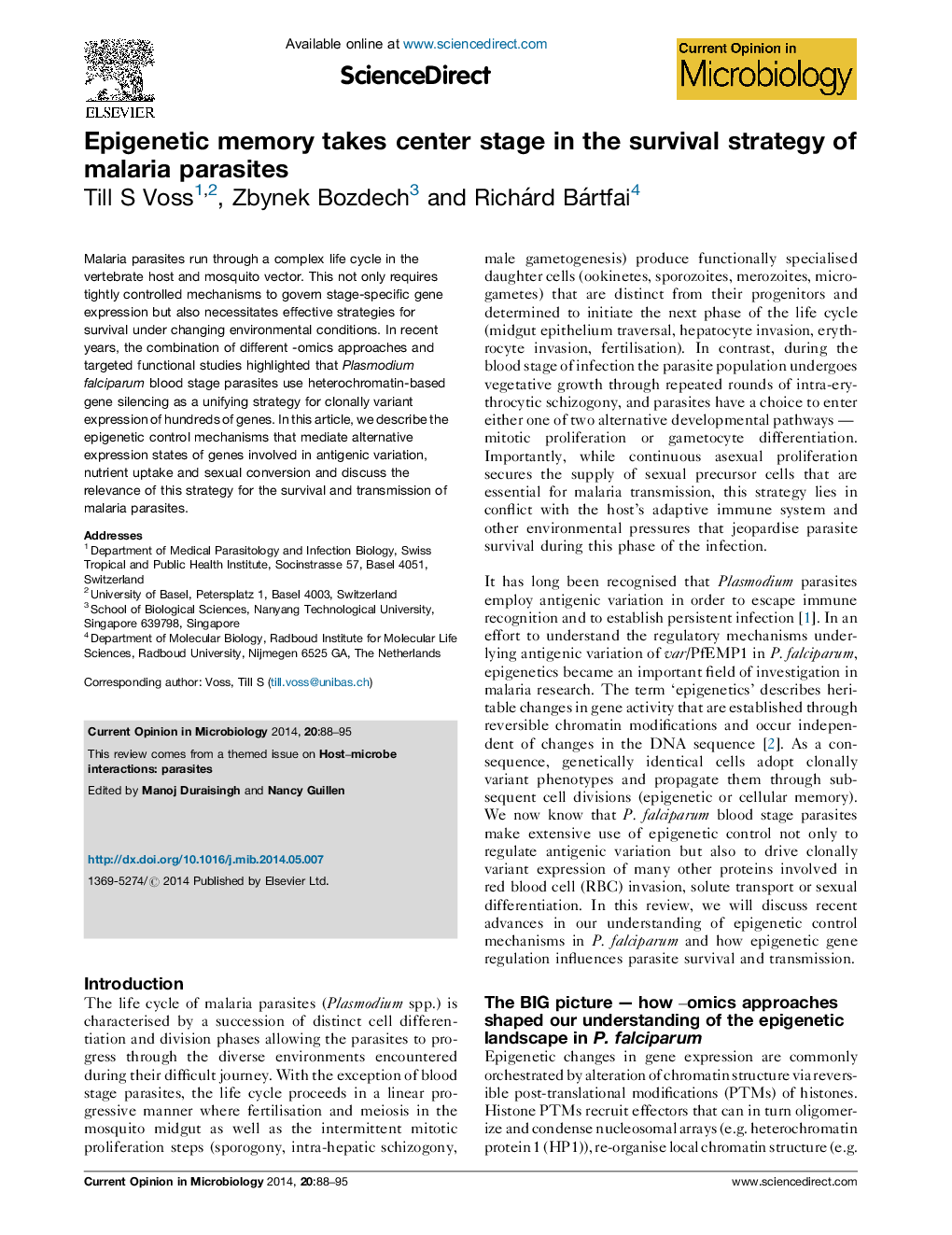| Article ID | Journal | Published Year | Pages | File Type |
|---|---|---|---|---|
| 6131858 | Current Opinion in Microbiology | 2014 | 8 Pages |
Abstract
Malaria parasites run through a complex life cycle in the vertebrate host and mosquito vector. This not only requires tightly controlled mechanisms to govern stage-specific gene expression but also necessitates effective strategies for survival under changing environmental conditions. In recent years, the combination of different -omics approaches and targeted functional studies highlighted that Plasmodium falciparum blood stage parasites use heterochromatin-based gene silencing as a unifying strategy for clonally variant expression of hundreds of genes. In this article, we describe the epigenetic control mechanisms that mediate alternative expression states of genes involved in antigenic variation, nutrient uptake and sexual conversion and discuss the relevance of this strategy for the survival and transmission of malaria parasites.
Related Topics
Life Sciences
Immunology and Microbiology
Microbiology
Authors
Till S Voss, Zbynek Bozdech, Richárd Bártfai,
